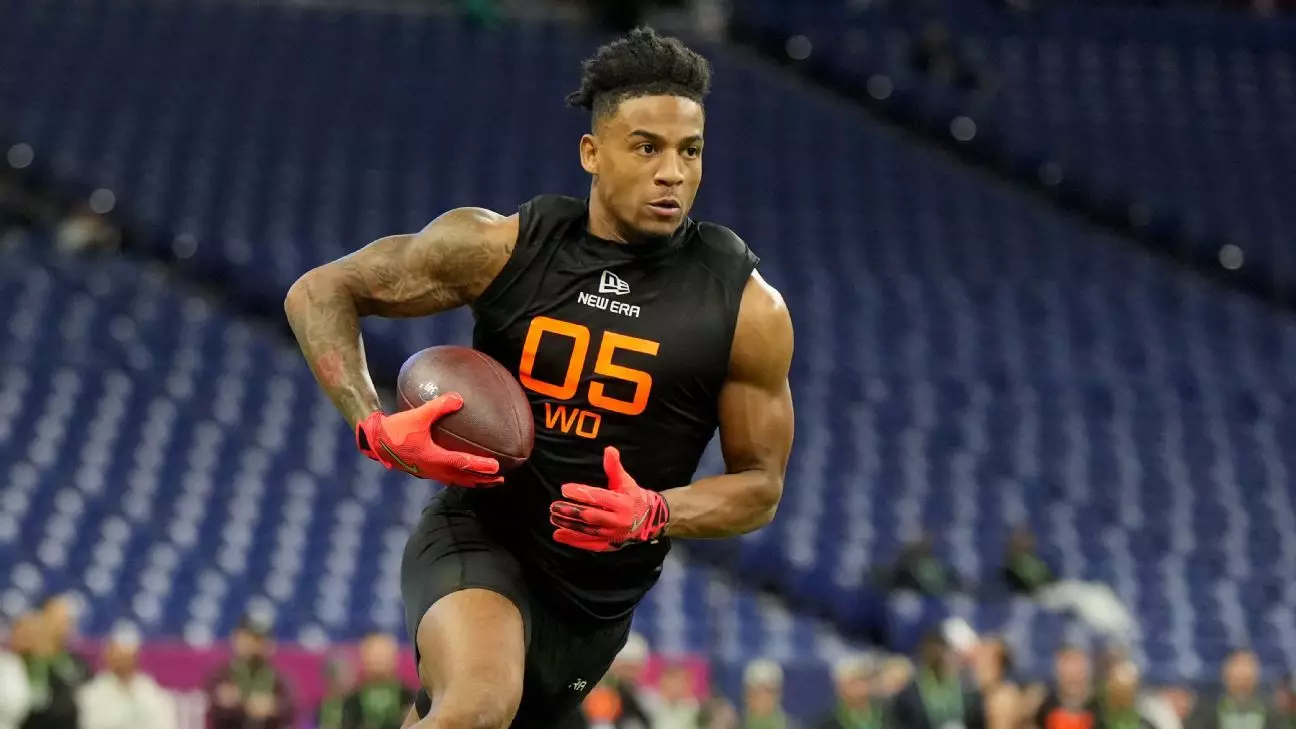The NFL world is currently abuzz with drama as Isaiah Bond, a promising draft prospect, finds himself entangled in a legal quagmire that could shape his career. Bond’s recent lawsuit against a woman alleging false statements surrounding a sexual assault charge showcases the persistent issues athletes face when personal matters intersect with public scrutiny. His case not only highlights the severe damage that can occur from unverified accusations but also the pivotal role of the legal system in defending reputations.
The Context of the Allegations
Last week, Bond voluntarily turned himself in to the Frisco Police Department in Texas due to an outstanding sexual assault warrant. The act of turning himself in indicates a willingness to confront the allegations head-on but simultaneously signifies the pressure he is under as a public figure. After being released on a $25,000 bond, Bond maintained his stance that the interaction with the unnamed woman was entirely consensual. This assertion sparks a critical discussion on the nature of consent and the complexities involved in sexual assault claims.
The Implications of Defamation Claims
In an age where reputations can be shattered by virulent accusations, Bond’s legal response, particularly the defamation claim encapsulated in his lawsuit, sheds light on the wider implications for athletes targeted with such allegations. Defamation can severely affect an athlete’s prospects, both personally and professionally, leading to potential loss of sponsorships, opportunities, and overall public perception. Bond’s legal team has taken a robust stance, asking for economic damages to rectify the harm done to his name and career. This move exhibits a proactive approach to defending against claims that could easily spiral out of control in today’s media landscape.
Public Sentiment and Response
Bond’s agent, Damien Butler, has communicated directly with all 32 NFL teams, attaching the lawsuit’s initial pages. In doing so, he seeks to ensure that the narrative surrounding Bond’s innocence reaches key stakeholders in the NFL. Meanwhile, Bond has utilized social media platforms to express his innocence and call for patience from the public while the investigation unfolds. He emphasized the need for a complete review before rushing to conclusions, a sentiment echoed across numerous high-profile cases in the sports world. The call for due process highlights the frequent struggle between immediate public opinion and the judicial system’s more measured approach.
A Spotlight on the Dangers of Quick Judgments
The case of Isaiah Bond serves as a critical reminder of the dangers inherent in jumping to conclusions based on allegations. With social media often acting as a double-edged sword, the rapid dissemination of information can lead to unfair stigmas attached to individuals. Athletes like Bond are not only competing for accolades on the field but also for their integrity in the court of public opinion. The fundamental question that arises is whether society is willing to wait for the truth to reveal itself rather than hastily declaring judgment based on fragmented information.
In navigating this complex and fraught landscape, Bond exemplifies the resilience many athletes must cultivate when facing powerful adversities beyond their control. As questions continue to linger, the importance of vigilance and fairness remains paramount.


Leave a Reply